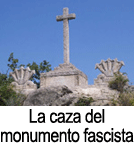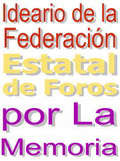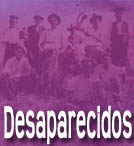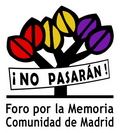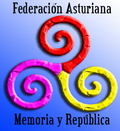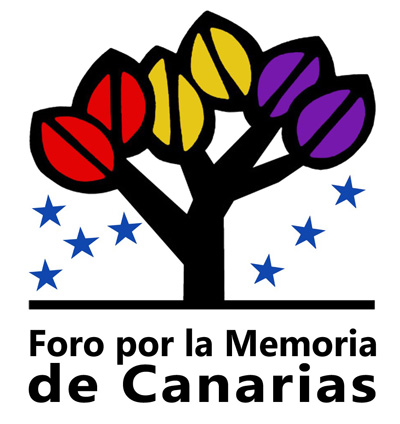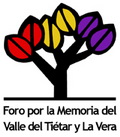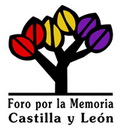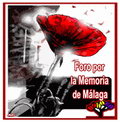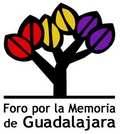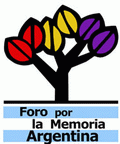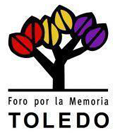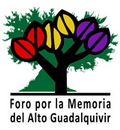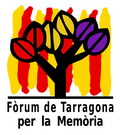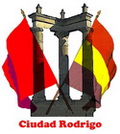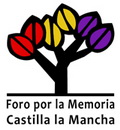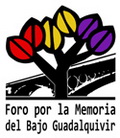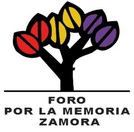Search for victims of Franco death squads dealt blow by Spanish court
 Granada court rules it is not competent to search for remains of Federico García Lorca and others thought to be buried near city
Granada court rules it is not competent to search for remains of Federico García Lorca and others thought to be buried near city
Giles Tremlett in Madrid
guardian.co.uk, Thursday 20 September 2012 17.16 BST
Attempts to seek and dig up the remains of thousands of victims of Francoist death squads in the Spanish civil war have run into trouble after a court refused to take charge of the search for the bones of poet and playwright Federico García Lorca and others killed alongside him.
A court in Granada, southern Spain, has ruled it is not competent to search for the remains of García Lorca and three other men whose bodies were thrown into an unidentified grave somewhere in the hills overlooking the city.
A local judge ruled that a 1977 amnesty law would prevent those responsible for murdering the author of Blood Wedding from being tried, while a statute of limitations meant too much time had gone by for the crime to be formally investigated.
The decision was a further blow to Spain’s historical memory campaigners, who have been seeking help from the courts as they continue a decade-long campaign to dig up Francoist victims and return remains to their families.
Along with similar recent decisions by other courts, it also helped close the door to the naming or prosecution of those who committed crimes against humanity during the Spanish civil war and in the repression that followed during the dictatorship of General Francisco Franco.
The court decisions stem directly from a ruling in which crusading magistrate Baltasar Garzón was reprimanded by the country’s supreme court for investigating crimes committed by Franco’s fascist-backed rebels.
In that case the court, which had already disbarred Garzón for overstepping his powers while investigating corruption in prime minister Mariano Rajoy’s People’s party, ruled that he had been wrong to open an investigation into the deaths of 114,000 Francoist victims.
The supreme court also rejected Garzón’s argument that, where people had simply been «disappeared», a crime of continuous kidnapping was still being carried out which was not covered by either the amnesty law or a statute of limitations.
Campaigners said they would appeal against the Granada court’s decision, taking their fight to the European court of human rights in Strasbourg if necessary.
García Lorca’s own family have opposed moves to dig up the grave where he is thought to lie alongside schoolteacher Dióscoro Galindo and anarchist bullfighters Francisco Galadí and Joaquín Arcollas. But the other families are determined to find their relatives.
«We want to help those families whose relatives were thrown into roadside graves,» said Rafael Gil Bracera of Granada’s historical memory association.
The alleged grave site, at the foot of an olive tree, was revealed to historians by a Spanish communist who claimed to have been forced to dig the grave as a 16-year-old.
The regional government of Andalucia spent €70,000 (£56,000) excavating the site in the hill town of Alfacar in 2009 – but no bones were found.
A local historian, Miguel Caballero, says he will ask the courts to investigate reports that human bones and a crutch that may have belonged to Galindo had been found and reburied when the area was turned into a park bearing the poet’s name in 1986.
He wants the courts to quiz officials who allegedly knew that the bones had been reburied at a spot beside the park’s gates.
Búsqueda para las víctimas de los escuadrones de la muerte de Franco trató golpe por un tribunal español
Granada reglas del tribunal no es competente para buscar restos de Federico García Lorca y otros pensaron para ser enterrado cerca de la ciudad
Los intentos de buscar y desenterrar los restos de miles de víctimas de escuadrones de la muerte franquistas durante la guerra civil española han tenido problemas después de que un tribunal se negó a hacerse cargo de la búsqueda de los huesos del poeta y dramaturgo Federico García Lorca y otros murieron junto a él .
Un juzgado de Granada, sur de España, ha sentenciado que no es competente para buscar los restos de García Lorca y otros tres hombres, cuyos cuerpos fueron arrojados a una fosa sin identificar en algún lugar de las colinas que dominan la ciudad.
Un juez local dictaminó que una ley de amnistía de 1977 impediría a los responsables de asesinar al autor de Bodas de sangre sean juzgados, mientras que un estatuto de limitaciones significaba demasiado tiempo habían pasado por el delito de ser formalmente investigados.
La decisión fue un golpe para los activistas memoria histórica de España, que han estado buscando la ayuda de los tribunales a medida que continúan una campaña de diez años para desenterrar a las víctimas del franquismo y el retorno restos a sus familias.
Junto con similares recientes decisiones de otros tribunales, sino que también ayudó a cerrar la puerta a la designación o el enjuiciamiento de quienes cometieron crímenes de lesa humanidad durante la guerra civil española y en la represión que siguió durante la dictadura del general Francisco Franco .
Las decisiones de los tribunales consecuencia directa de un fallo en el que las cruzadas magistrado Baltasar Garzón fue amonestado por el tribunal supremo del país para investigar los delitos cometidos por los fascistas de Franco respaldados por los rebeldes.
En ese caso, el tribunal, que había inhabilitado ya Garzón por excederse en sus poderes mientras investigaba la corrupción en Popular primer ministro Mariano Rajoy partido, falló que se había equivocado de abrir una investigación sobre la muerte de 114.000 víctimas del franquismo.
La Corte Suprema también rechazó el argumento de Garzón de que, cuando la gente había sido simplemente «desaparecidos», un delito de secuestro continua se siguen llevando a cabo, que no fue cubierto por la ley de amnistía o la prescripción.
Los activistas dijeron que iban a apelar contra la decisión del tribunal de Granada, llevando su lucha hasta el Tribunal Europeo de Derechos Humanos de Estrasburgo si es necesario.
Propia familia García Lorca se han opuesto se mueve a cavar la tumba donde se cree que yace junto a maestro Dióscoro Galindo y los toreros anarquistas Francisco Galadi y Joaquín Arcollas. Pero las otras familias están decididas a encontrar a sus familiares.
«Queremos ayudar a aquellas familias cuyos parientes fueron arrojados a fosas borde de la carretera», dijo Rafael Gil Bracera asociación de la memoria histórica de Granada.
La supuesta tumba, al pie de un olivo, fue revelado a los historiadores por un comunista español que afirmó haber sido obligado a cavar la tumba como un 16-años de edad.
El gobierno regional de Andalucía gastado € 70.000 (£ 56.000) excavar el sitio en la colina de la ciudad de Alfacar en 2009 – pero no huesos fueron encontrados.
Un historiador local, Miguel Caballero, dice que va a pedir a los tribunales para investigar los informes que los huesos humanos y una muleta que pueden haber pertenecido a Galindo habían sido encontrados y enterrados de nuevo cuando la zona se convirtió en un parque que lleva el nombre del poeta en 1986.
Él quiere que los tribunales para hacer preguntas a los funcionarios que supuestamente sabían que los huesos habían sido enterrados de nuevo en un lugar al lado de las puertas del parque.
http://www.guardian.co.uk/world/2012/sep/20/victims-franco-death-squads-blow








